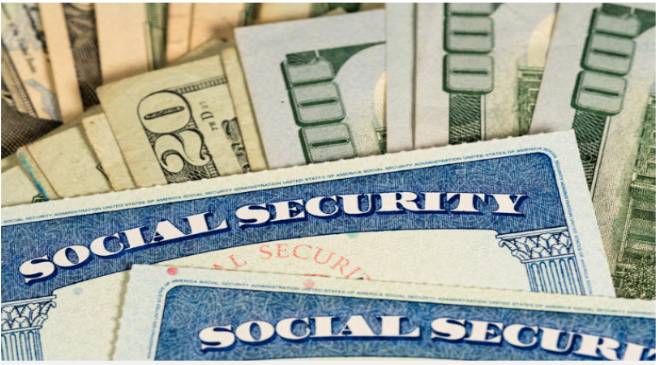You may be planning to receive Social Security benefits when you reach your retirement age or become eligible, but you may not know that you can lose some of all of your benefits for a variety of reasons — some of which could be out of your control.
Also Read– Social Security COLA Predicted to Increase Slightly in 2025: What to Know

Benefits through the Social Security Administration span money retirement payments, disability assistance through Social Security Disability Insurance (SSDI) and support to disabled adults and children who have limited income and resources and those 65 and older who are not disabled but have limited income and resources through the Supplemental Security Income (SSI) program.
Here are the ways you could potentially lose your Social Security benefits and whether you’re eligible to get them back.
For more, here’s how much your Social Security check could increase in 2025 and when to look for your check this month. For all your questions, check out our essential Social Security and SSDI cheat sheet.
Lose Social Security benefits because your income exceeds benefit limits
You can receive Social Security benefits while having a job, but your monthly benefits payout may be affected if you earn over the eligibility limit.
Supplemental Security Income limits
Eligibility for SSI typically requires that you earn less than $1,971 per month from work. The limit is increased for couples, but if you exceed that limit, you may no longer be eligible for SSI.
Note: For every $2 you earn from work, $1 will be reduced from your SSI payment. Working includes any job you have. You’re required to promptly report changes to your monthly income and living situation.
Also Read– Chase Bank CD Rates 2024: How They Compare and What You Need to Know
Social Security Disability Insurance income limits
SSDI beneficiaries have a little more wiggle room about making money from work. If you get a job while receiving SSDI, you’ll be able to retain your benefits for up to 9 months, which the Social Security Administration calls a “work trial period.” For 2024, any month you bring in over $1,110 in gross wages will count toward this nine-month trial period. Note that months don’t have to be consecutive, either, but within a rolling five-year period. During these nine months, there’s no limit on how much you can earn while retaining your benefits.
After your work trial period, you’ll enter into a 36-month “extended period of eligibility” (EPE). During this time, if you exceed the EPE earnings limit, you won’t qualify for your SSDI payment for that month. In 2024, the EPE limit is $1,550 per month or $2,590 for disability due to blindness.
If you continue to earn over the limit after your EPE is up, your SSDI payments will cease, but if you can’t continue to work, you can restart your benefits.
Also Read– 6 under-the-radar benefits of using a debit card instead of a credit card
SSI resource limits
In addition to an income limit, to be eligible for SSI, you need to fall under what the administration calls a “resource limit.” Resources that do count toward the limit include cash; bank accounts; stocks, mutual funds, and US savings bonds; land; life insurance; personal property; vehicles; and anything else you own that could be changed to cash and used for food or shelter, the administration said.
Resources that do not count include the home you live in and the land it is on;
one vehicle, if you or a member of your household use it for transportation; household goods and personal effects; and life insurance policies with a combined face value of $1,500 or less.
To be eligible, the SSI resource limit is $2,000 for an individual and $3,000 for a couple. If you exceed that limit, you need to spend down your resources to be eligible. According to a recent study by the Center on Budget and Policy Priorities, 70,000 beneficiaries on average lose their benefits each year because they exceed the limit. Congress has proposed legislation that would, for example, raise the limit to $10,000 for individuals and $20,000 for married couples but so far, changes have not been signed into law.
Also Read– As a Senior, When Can I Stop Paying Property Taxes?
You’re recently divorced
Obviously, your marital status can and will affect your Social Security benefits, and that includes becoming divorced. A few things would prevent you from collecting your ex-spouse’s benefits:
- You weren’t married for 10 years or more.
- If you remarry, you won’t be able to get benefits from your previous marriage. However, this can change if your current marriage ends through divorce, annulment or the death of your partner.
- You qualify for benefits and the amount you receive would be more than your ex-spouse’s.
You become incarcerated
In the event that you go to jail or prison, your Social Security benefits can be affected. If you’re incarcerated for more than 30 days, the administration may suspend your Social Security and SSI benefits.
Also Read– Daily horoscope today: August 16, 2024 astrological predictions for your star sign
Social Security and Social Security Disability Insurance while incarcerated
If your benefits are suspended, you can request to have them restored for the following month after you’re released from jail or prison. Something to note is that even if your benefits are suspended while incarcerated, your spouse or children will continue to receive them as long as they remain eligible.
Supplemental Security Income
While incarcerated, your SSI benefits will be suspended, but payments will resume when you’re released, and you won’t have to wait until the following month. Your payment amount will be determined by your release date, and would only be a partial payment.
Also Read– Daily horoscope today: August 15, 2024 astrological predictions for your star sign
If you’re in jail or prison for over 12 consecutive months, the administration will terminate your SSI benefits. When you’re released, you will need to reach out to the Social Security Administration and start a new application.









































